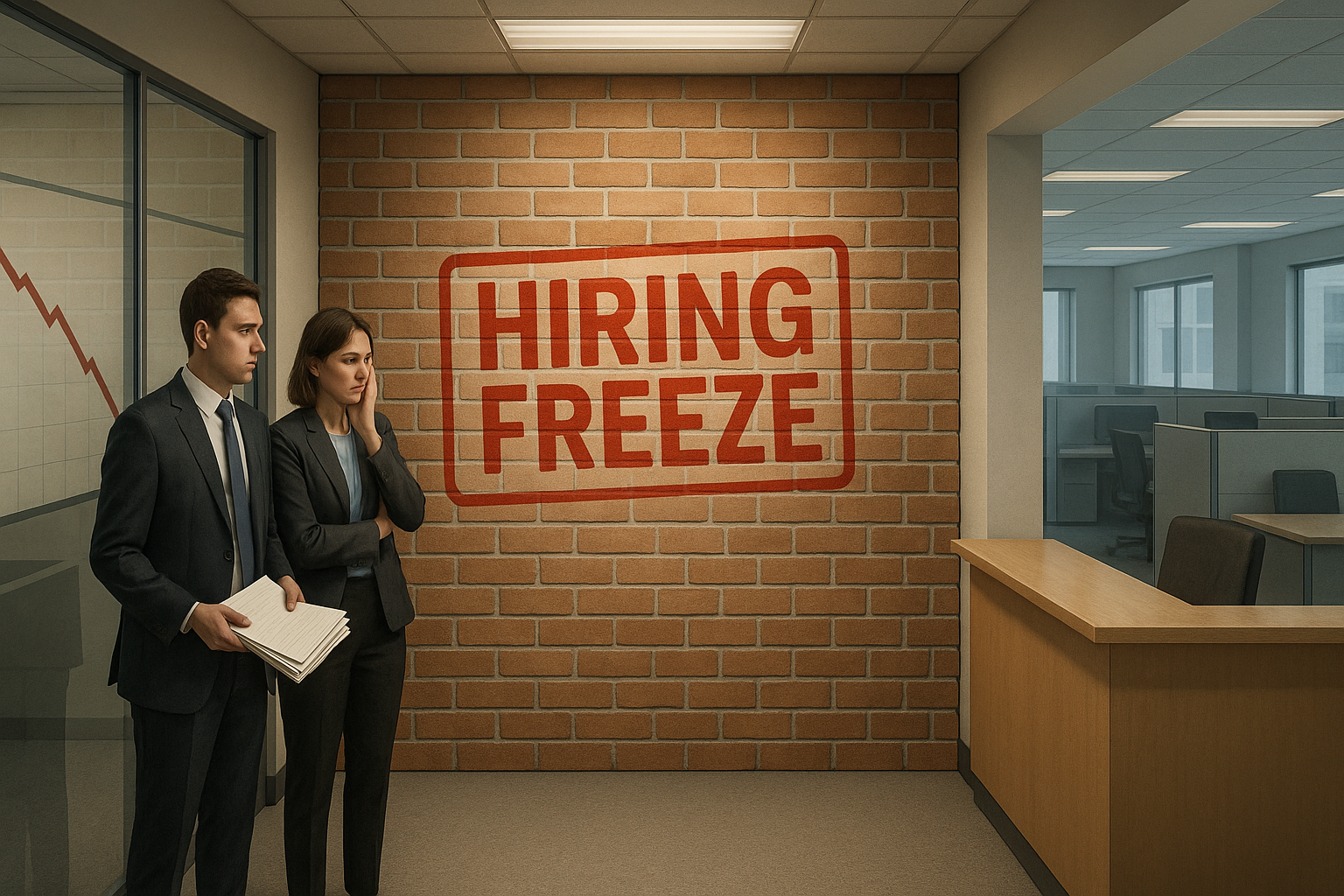The recruiting world is having what you might call a moment of reckoning. After riding high on the pandemic hiring wave—when finding qualified candidates was like hunting for toilet paper in March 2020—firms across the industry are now watching their revenue streams dry up faster than a puddle in the Arizona sun.
It's brutal out there.
Major players are feeling the pain acutely. Robert Half and Korn Ferry—titans in the talent acquisition space—have reported revenue declines deep into double-digit territory. Randstad, the global staffing behemoth, saw its North American revenue plummet 11% in the second quarter. These aren't just bad numbers; they're the kind that make executives cancel their premium subscriptions and start bringing lunch from home.
The pattern makes perfect sense if you've been watching this industry long enough. Recruiting has always functioned as a sort of economic canary in the corporate coal mine. When times are good, companies scramble to hire recruiters. When budgets tighten... well, those same recruiters often find themselves on the wrong side of a "strategic restructuring."
I've covered this sector since the dot-com bust, and there's a rhythm to it—a boom-and-bust cycle that plays out with almost mathematical precision.
"We're seeing classic defensive positioning across the board," a managing director at a mid-sized recruiting firm told me last week, requesting anonymity because he wasn't authorized to sound so pessimistic. "CFOs who couldn't hire fast enough eighteen months ago are now scrutinizing every single req like it's coming out of their personal checking account."
What's particularly interesting this time around is how unevenly the pain is distributed. Tech recruiting? Absolutely devastated. Those specialized recruiters who were commanding premium fees to find software engineers are now sending out their own résumés. Healthcare staffing, on the other hand, remains relatively stable. It's not thriving, mind you—just not bleeding out.
This selective contraction tells us something important about the broader economy. We're not witnessing a uniform pullback across all sectors. Instead, it's more like a correction targeting the areas that overheated during the pandemic gold rush.
The psychological dimension of all this is fascinating (and a bit maddening if you're actually in the business). During the tight labor market of 2021-2022, hiring took on an almost frantic quality. Companies developed a fear-of-missing-out approach—grab anyone decent now, or watch your competitor snatch them up tomorrow! That mentality created a self-reinforcing cycle where perception drove behavior, which reinforced the perception.
Now? The pendulum has swung dramatically in the opposite direction.
Companies are hesitating, which gives their competitors permission to hesitate too, and suddenly everyone's "reassessing hiring needs"—corporate-speak for "not hiring anyone unless absolutely necessary."
The impact on recruiting firms themselves has been predictable, if painful. The same outfits that were frantically adding staff to handle the tsunami of business are now conducting layoffs of their own. Smaller boutique agencies are either folding entirely or getting absorbed by larger players with the financial cushion to ride out the storm.
Look, we've seen this movie before. The recruiting industry expands and contracts like an accordion, with movements far more dramatic than the broader economy. During the good times, they can't hire fast enough. During downturns, they're the first to feel the squeeze.
What makes this cycle particularly awkward is the timing. Dozens of recruiting tech startups raised massive funding rounds during the pandemic boom, promising to revolutionize hiring through AI, machine learning, and other technological wizardry. Many of these firms are now discovering a harsh truth: when companies stop hiring, they also stop buying fancy new tools to optimize a process they're barely doing.
For job seekers, the implications are mixed. Competition for open positions is intensifying, no question. But the best companies know that downturns present rare opportunities to upgrade talent—if they have the courage and resources to keep hiring while others retreat.
Will the industry bounce back? Of course it will. It always does. But not before some serious pain and consolidation reshape the landscape.
In the meantime, recruiters are doing what they always do during these cycles: diversifying offerings, targeting counter-cyclical sectors, and reminding anyone who'll listen that the "war for talent" is eternal—even when it occasionally calls for a temporary ceasefire.
